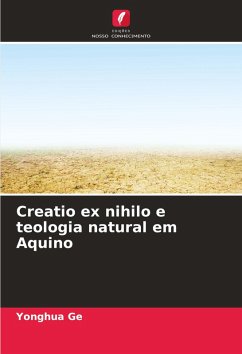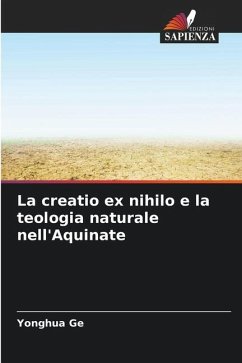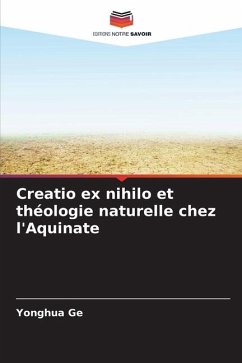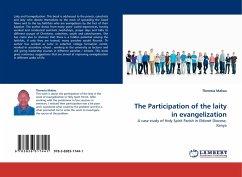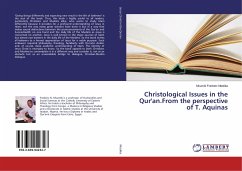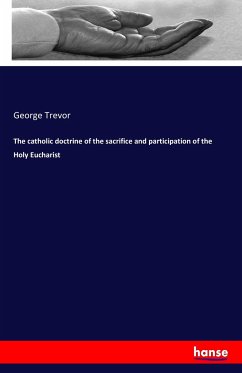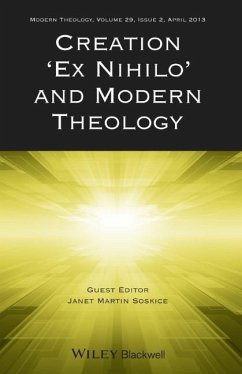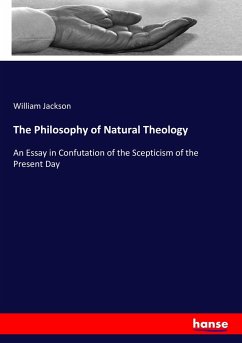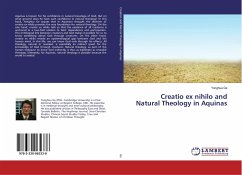
Creatio ex nihilo and Natural Theology in Aquinas
Versandkostenfrei!
Versandfertig in 6-10 Tagen
27,99 €
inkl. MwSt.

PAYBACK Punkte
14 °P sammeln!
Aquinas is known for his confidence in natural knowlege of God. But on what ground does he have such confidence in natural theology? In this book, Yonghua Ge argues that in Aquinas's thought the doctrine of creatio ex nihilo provides the very foundation for natural theology. On the one hand, creatio ex nihilo tells us that the existence of all creatures is anchored in a two-fold relation to God: dependence and participation. This ontological link between creatures and God makes it possible for us to know something about God through creatures. On the other hand, creatio ex nihilo reveals an epi...
Aquinas is known for his confidence in natural knowlege of God. But on what ground does he have such confidence in natural theology? In this book, Yonghua Ge argues that in Aquinas's thought the doctrine of creatio ex nihilo provides the very foundation for natural theology. On the one hand, creatio ex nihilo tells us that the existence of all creatures is anchored in a two-fold relation to God: dependence and participation. This ontological link between creatures and God makes it possible for us to know something about God through creatures. On the other hand, creatio ex nihilo reveals an epistemological gap between God and the human mind. In this life, we can know God only through his effects. All theology, natural or revealed, is essentially an indirect quest for the knowledge of God through creatures. Natural theology, as part of the human endeavor to know God indirectly, is thus as legitimate as revealed theology. Ultimately, for Aquinas, natural theology is possible becausethe world is created.



